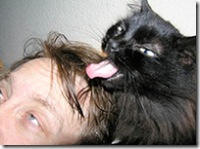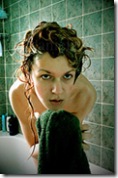Review of the 6 Most Popular Hair Loss Treatments
 When approaching the issue of an appropriate hair loss treatment, the first thing to consider is a cause of balding or thinning of hair. (Read our article “3 Basic Reasons for Hair Loss“). Depending on whether you are losing your hair due to hormones, genes, an infectious disease, stress, or malnutrition, you have to select an appropriate approach to possible ways of curing the condition.
When approaching the issue of an appropriate hair loss treatment, the first thing to consider is a cause of balding or thinning of hair. (Read our article “3 Basic Reasons for Hair Loss“). Depending on whether you are losing your hair due to hormones, genes, an infectious disease, stress, or malnutrition, you have to select an appropriate approach to possible ways of curing the condition.
Unless a serious pathology or a disease if involved, a good rule of thumb is to start with trying the mildest and the least invasive solutions, and, if they do not work, to switch onto more powerful drugs or even to consider a restoration surgery or a hair transplant. In this article, we are going to discuss the six most popular hair loss treatments, each of which has a potential to restore healthy growth of scalp hair.
1) Growth Stimulants, such as Rogaine, Folligen, or Tricomin, help to artificially invigorate the growth of hair by stimulating the hair roots and the surface of the scalp. Stimulants can work efficiently no matter what the cause of hair loss is, and they represent the least invasive “cosmetic” approach to a hair loss treatment.
2) DHT Inhibitors, such as Progesterone cream, Crinagen, or Revivogen, are the most efficient if the cause of hair loss is hormonal. DHT Inhibitors bind the male hormone testosterone and help you keep a healthy hormonal level, which is very important for regulating and balancing of hair growth. Those products represent a “pharmaceutical” approach to treating balding.
 3) Anti-Inflammatory medication, such as Nizoral or T-Gel shampoos and creams, also fall in a category of pharmaceutical hair-restoring remedies, which can be obtained without a doctor’s prescription. They work well in the cases of hair thinning caused by the conditions like psoriasis, severe dandruff, or seborrheic dermatitis. They are also extremely effective in reducing itching, scaling, and other unpleasant effects of a chronic inflammation of the scalp. A word of caution here, though - Nizoral, for example, itself can cause hair to fall, therefore, you have to be careful when using anti-inflammatory medication and to observe your personal reaction to the medicated shampoos or creams.
3) Anti-Inflammatory medication, such as Nizoral or T-Gel shampoos and creams, also fall in a category of pharmaceutical hair-restoring remedies, which can be obtained without a doctor’s prescription. They work well in the cases of hair thinning caused by the conditions like psoriasis, severe dandruff, or seborrheic dermatitis. They are also extremely effective in reducing itching, scaling, and other unpleasant effects of a chronic inflammation of the scalp. A word of caution here, though - Nizoral, for example, itself can cause hair to fall, therefore, you have to be careful when using anti-inflammatory medication and to observe your personal reaction to the medicated shampoos or creams.
4) Super Oxide Dismutase hair treatments, such as Proxiphen or Proxiphen-N, can be helpful if hair loss is caused by an overactive response of the immune system, which sometimes makes hair reject their own follicles. Some of the products in this category, such as Tricomin and Folligen, also have a combined effect and work as both hair stimulants and SODs. Most of those efficient drugs can be purchased over the counter.
5) Antiandrogens, such as Spironolactone or Crinagen, act on the hormones involved in hair growth, including androgen receptors, and are effective in cases of middle-age balding, especially among men.
6) Hair Transplantation and Restoration Hair Surgery are the most potent, but also the most invasive and expensive, types of hair loss treatments. In the course of the procedure, new hair with  alive roots are being planted into the scalp, or larger grafts of hair, also known as “plugs”, are being replaced. Hair transplantation is usually a lengthy and painful procedure and, therefore, it is performed under local anaesthesia and in a surgical setting. Sometimes repeated surgery sessions are required, but even then the procedure does not guarantee one hundred per cent survival of the transplanted hair.
alive roots are being planted into the scalp, or larger grafts of hair, also known as “plugs”, are being replaced. Hair transplantation is usually a lengthy and painful procedure and, therefore, it is performed under local anaesthesia and in a surgical setting. Sometimes repeated surgery sessions are required, but even then the procedure does not guarantee one hundred per cent survival of the transplanted hair.
Christiana Roberts
Posted on September 13, 2007
Filed Under Hair Loss Treatments
Comments
Leave a Reply
